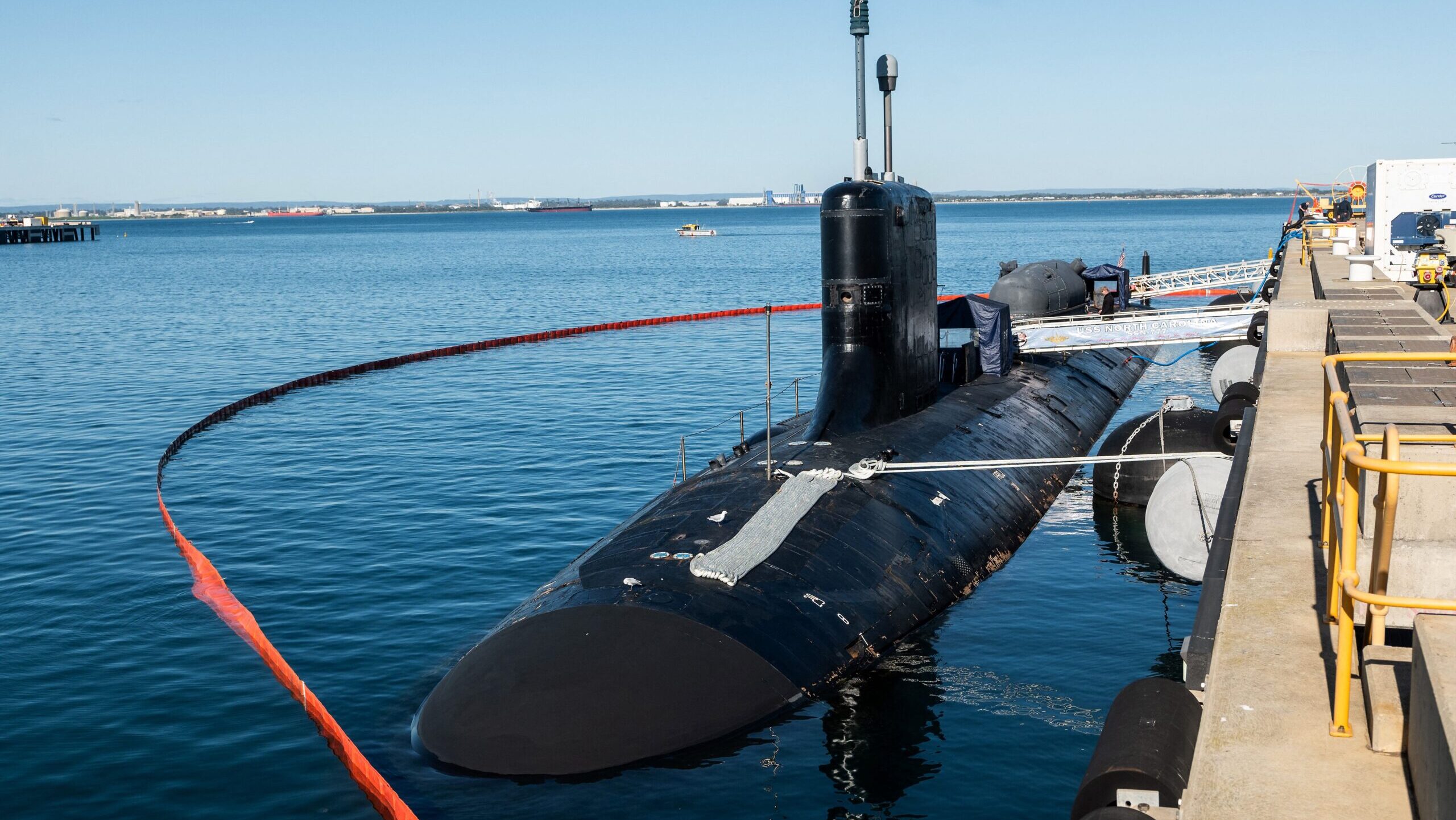
US Navy Virginia-class submarine, USS North Carolina, docks at the HMAS Stirling port in Rockingham on the outskirts of Perth on August 4, 2023. A US Navy Virginia-class submarine arrived at HMAS Stirling for a scheduled port visit as part of routine patrols in the Indo-Pacific region. (Photo by Tony McDonough / AFP) (Photo by TONY MCDONOUGH/AFP via Getty Images)
WASHINGTON — After days of grueling negotiations, House leadership today released a stopgap funding proposal that would extend federal funding into mid-March and add $5.7 billion in emergency funds for Virginia-class submarine construction.
Now Congress has until Friday night to pass the continuing resolution (CR) before federal spending runs out, giving lawmakers a tight timeframe to move through procedural hurdles and avert a government shutdown.
Congressional leadership reached a deal on this evening after days of negotiations, which initially saw Republicans seeking extra funds for farmers and Democrats pushing for additional disaster relief to be included in the spending bill. Ultimately, the 1,574-page agreement expanded to include a laundry list of other issues, including public health and workforce programs as well as the future of Washington’s RFK Stadium.
For defense, the most newsworthy item is the pot of additional submarine funding, which will allow the Navy to incrementally fund emerging needs on the Virginia-class submarine contract or “other nuclear-powered vessel programs” until the end of fiscal 2029. Specifically, it would fund “the improvement of workforce wages and non-executive level salaries,” the bill text states. The funds are classified as emergency spending — a critical designation that allows the Defense Department to sidestep current spending limits imposed by the Fiscal Responsibility Act, as well as any future budget caps.
The funds could provide additional funding flexibility for the Navy as it tries to strengthen the submarine industrial base, which is struggling to hire and retain skilled technicians and boost small suppliers.
Other defense related increases include the addition of disaster relief funding for military installations that suffered damages caused by Typhoon Mawar as well as various hurricanes. It also directs the Air Force to transfer the 113th Wing of the District of Columbia Air National Guard to the 175th Wing of the Maryland Air National Guard.
While inserting language on various domestic issues was seen as critical for House Speaker Mike Johnson to win Democrat support — a key consideration, given the GOP’s razor-thin majority in the House and potential need to amass a two-thirds majority for bill passage — the accumulation of provisions unrelated to the CR itself could rankle hardline and fiscal conservatives who had pushed for a bare-bones CR.
During a news conference this morning, Johnson said he is hopeful he can get House Republicans on board and defended the last-minute additions to the bill.
“It’s not a Christmas tree, it’s not an [omnibus]. … This is a small CR that we had to add things that were out of our control,” Johnson said, noting the need for additional aid for farmers and disaster relief funding.
The CR would extend until March 14, ahead of an April 30 deadline to pass a full-year appropriations bill before across-the-board spending cuts known as sequestration kick in, under the terms of the FRA.











